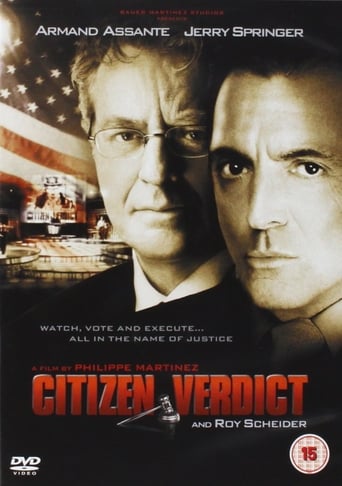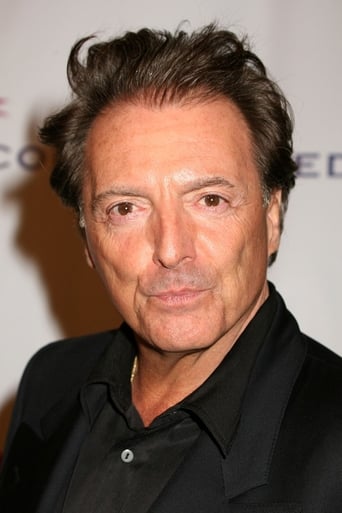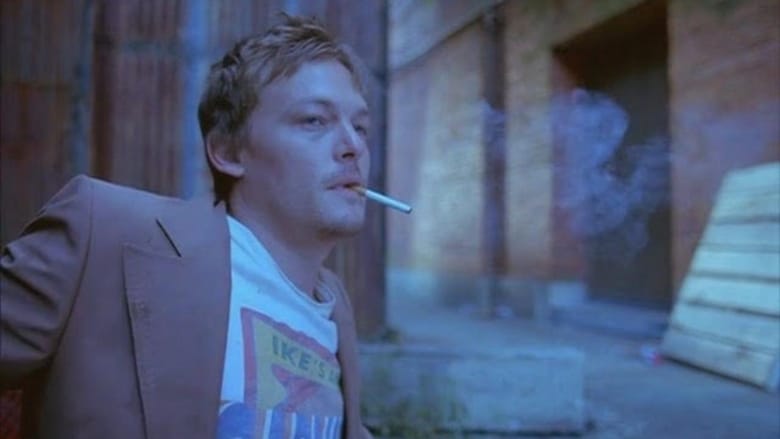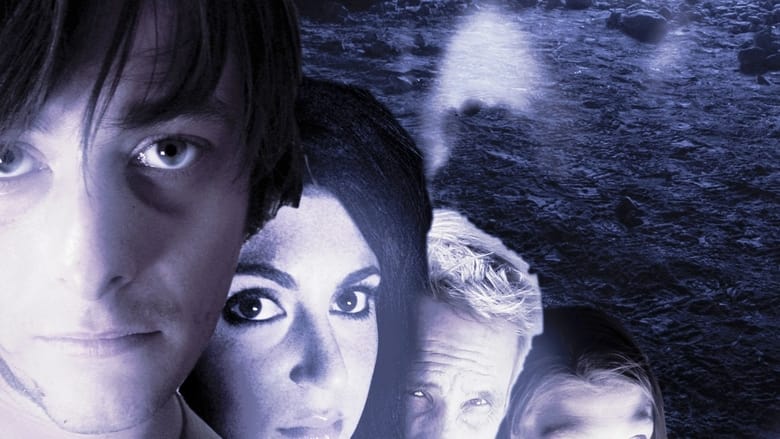A sensationalist TV producer has a novel new idea to shake up American reality TV: Citizen Verdict, a live show where accused criminals are tried and potentially convicted by the viewing public.


Reviews
Citizen Verdict is not a fantastic film but it deserves credit for the profound issues it raises as to the current trend in the evolution of law and justice into Entertainment. This theme was treated with blistering intelligence some 32 or so years ago in a film called NETWORK directed by Sidney Lumet and written by Paddy Chayevsky that warned about the risk of reducing the Fourth Estate to a business scramble for profits and entertainment ratings. NETWORK explored the logical extension of and the dangers inherent in permitting our news outlets to become hijacked by the excessive market impulses of the modern American Corporate Economy. Citizen Verdict is a variation on this same interesting theme applied to our Criminal Justice System. The film shows how the convergence of corporate profits, entertainment, and the law can collide in deeply perverse ways. Briefly, Citizen Verdict takes a Capital Case and submits it to Television Executives who evaluate the case for its entertainment value, which is to say its ratings worthiness, which is to say its profitability, and submits the case to a Jury composed of a mass television audience. Ironically, Sidney Lumet's 12 Angry Men is an homage to our Trial By Jury system. In Citizen Verdict, the Jury becomes the Mass Audience, less a jury than a National or International (depending on the size of the voting audience) Plebiscite. In other words, criminal justice really becomes an electoral matter.The implications of this are enormous. First, television justice has already to some extent made small claims civil justice a matter of entertainment in many of the Court Television programs. There is currently a profusion of high paid celebrity judges who mete out justice for ratings on a daily basis in a kind of fast food, McJustice format designed to entertain while resolving disputes. The problem becomes whether Justice or Entertainment becomes the primary concern and, if entertainment prevails, what that means for a Democracy. Second, it is only a matter of degree and programming restraint which relegates civil law to television while excluding criminal law. Thirdly, the tendency of money to corrupt even the strictest of moral standards makes the risk that potential television profits could outweigh and overshadow any legal, civil, or political judgment relative to life and limb. Fourthly, most of the verdicts on the current crop of television programs are decided solely by the sitting Judge but if the ratings were promising enough, which is to say the profits enormous enough, how would considerations of life and limb compare to the billions in potential profits? What's a little Due Process mean when there are millions to be made in the American Marketplace?Citizen Verdict is commenting on a societal depravity which puts money, entertainment, and self-indulgence above human dignity & Justice, and extrapolates this malady to Television and the potential Corruption of law and the Criminal Justice system. It may seem like an outrageous plot but truth is often stranger than fiction. The idea of De-Humanization is not necessarily as far off as we think if for example the Rights of Corporations are increasing in inverse proportion to those of Human Beings. In an era where Constitutional Liberty is sacrificed on the altar of national security, while salaries and earnings remain relatively stable, and technology creates wealth at dizzying rates, the individual and his due process protections may become as extinct as the dinosaur in the interest of stable markets: really, a matter of Hobson's Choice. If law becomes more a business than a matter of human equity, if money begins to eclipse the value of human life and happiness, if necessity means more than freedom, if profits overshadow justice, then there is no doubt that all the evolution of our Jurisprudence - Hammurabai, The Athenian and Roman Codes, the Magna Charta, the English bill of rights, the American Declaration, the US Constitution and The American Bill of Rights - can be supplanted and swept away in the twinkling of an avaricious eye by TV Ratings and Human Shortsightedness and Endless Consumerism. 1,000 of years of human legal progress eviscerated by greed and trivialized by entertainment ratings and a man's life and limb subject to Mob Justice like the lynchings of old.Finally, in the light of Citizen Verdict, one must rethink the difference between a Just Verdict and a Popular Verdict and what that might mean, for example, in the context of an unpopular defendant. OJ Simpson would have fried if he'd been a Defendant on Citizen Verdict. He was, thanks to this same convergence of media, law, and entertainment values, one of the most unpopular defendants in history. Our system acquitted him, the Citizen Verdict system would have probably convicted him. What should that tell us about Criminal Justice as Entertainment and Popularity as Justice? It says that a Man's guilt or innocence should stand on the facts, evidence and law and the integrity of our legal institutions. It says that our entire system could easily become skewed and that our compulsive drive and bottomless appetite for growth and money is probably corruptive, unsustainable over the long haul if we hope to remain civilized, clouds our better judgment, and will probably erode all our institutions and connection to human values if we are not perceptive. Citizen Verdict shows that justice as entertainment as profit is not ultimately justice at all because its goal is not solely or even primarily justice within the context of television. It can't be unless it appears on PBS, and then it still has to entertain. Justice simply should not be for sale or even give the appearance that it is for sale in a healthy Democratic Republic. This is not a monumental film but it raises monumental issues having to do with Human Dignity, Due Process of Law, and the intersection of Entertainment and Money on the ultimate concern of the law which should always be Justice.
With the writers strike continuing, we might just be in for some schlock like this to fill the air until it is settled. I am not, of course, referring to the movie, although it is pretty bad, but to the concept that has a real murder trial on TV for three hours and then, for only $19.95, you can actually watch the execution. Of course, there will be an execution, as TV cannot resist the $250 that they will bring in.It is interesting that they picked Jerry Springer to lead this show, and that it is set in Florida, second only to Texas for their blood-lust. They gladly spend $1.99 to vote to execute. After all, that saves them money that would be spent on wasteful things like health care and education.Amand Assante just seemed to drift through the film until he is called upon to make a rousing speech at the end. It is wasted breath, as this would be an easy sell these days.I won't recommend it, but you might want to watch it to see where we could end up if things keep going like they are. bring back the writers!
I am trying to think of a quality that this movie has that I admire. The concept was weak to start with, the plot abysmally developed, the acting shocking (can't you give a long rant in one take Jerry?), production, even sound far below par.I am glad that I was watching on DVD so could easily skip straight to the predictable verdict, which I did only out of a morbid curiosity rather than actual interest. We were taking bets on what how the movie would pan out after that, and while technically I feel bound to say that it wasn't predictable, because none of us predicted it quite right, it was nonetheless, very lame.We really didn't have the stomach for the self-congratulatory epilogue and switched off.
The film ostensibly has an outrageous plot. For the last few years, TV audiences have been swamped with "reality shows". As Armand Assante's character Sam Patterson says: "You're not voting someone off an island: you're not evicting someone from a dormitory: you're banishing someone from the planet!". It is illusion versus reality. It is the ultimate "what if" proposition. What if the citizenry were to be able cast a vote on guilt or innocence in the manner that a jury does? I have problems with the basic hypothesis and hence with the film itself. You may as well have "Citizen Surgery", "Citizen Psychiatry" or "Citizen Dentistry" (I hope they're not going to be sequels - they'd have to be comedies if they're ever made) where anyone could put in their $19.95's worth. First and foremost, you would be allowing people who might not be fit for all sorts of reasons to cast a vote, the only criterion being of whether the person in question can muster up $19.95 on their credit card to enable them to vote! People may be racially motivated; be prejudiced against a certain profession e.g. teachers. They may be mentally unfit and so on. That's why juries are screened as you can see in "The Devil's Advocate" (Al Pacino, Keannu Reeves). True that's open to manipulation but it's better than open slather. The story fails on its basic premise. It's interesting to revolve it as a speculation but no more than that. I sense the film-makers expected us to take it a little more seriously. One of the previous reviewers, nitatestock35 made a comment to the effect that he suspected that some of the people were not actors. The clue to an answer to this is in the final credits where it is revealed that Armand Assante himself was the interviewer. Most likely real interviews were conducted by Assante (probaly as an afterthought) which were then melded into the storyline to give the film a sense of verisimilitude which it desperately needed. There was indeed a judge in the interviews but also a defence lawyer as well as a District Attorney and a smattering of 'ordinary folk' with their various prejudices.American jurisprudence is not my long suit but I cannot imagine any jurisdiction in the world allowing a court of first instance to be the final arbiter of a capital case. Any decision rendered by a single judge of lower would be taken to an appellate court. No lawyer/attorney/solicitor/barrister worth his salt would be content with an adverse verdict and would appeal the decision perhaps all the way to the Supreme Court of America or in Australia's case, the High Court. Is this one of the "loose story threads" mentioned by others. Of course the 'deus ex machina' employed by the scriptwriters in introducing damning videotape (which it is also suggested would have been inadmissible under those circumstances in a real court case) obviates the more subtle nuances of court procedure. The tape brings the trial to a grinding halt and we don't have to think about the byways of the appeal process.Raffaelo Degruttola gave a sterling performance as a violent schizophrenic time-bomb whose cloak of calmness is easily torn away. But if he hears voices, as he says he does after admitting to the murder, should not psychiatric evaluation been available to him. Are schizophrenics executed regardless in America? The execution scene is harrowing. One of the most interesting characters was Carlene Osway played by Dorette Potgieter, a beautiful blonde girl in the Finnish style, whose outer beauty is counterbalanced by an inner moral bankruptcy and void. Bad people are almost always the most interesting. Indeed ironically she uses her beauty to further her ignoble pursuits first turning up unannounced to Sam's yacht (please don't tell me it's a ketch or yawl, I'm not strong on boats either) dressed like "stripper" to help him but who eventually ends up in Marty Rockman's spa-pool and bed. This is a girl who wants to get to the top in the shortest time possible. She definitely 'stoops to conquer'. I don't watch the Jerry Springer Show for reasons you can guess at. I thought, despite other comments to the contrary that his performance (and he's no stranger to the camera lens) was creditable ending in his penultimate scene where his diatribe on his perceptions of reality are summarised as he declares TV to be the present God. The scene is skilfully edited into a melange of overlapping and interlocking images reinforced by the crescendo of clashing music chords giving the viewer a surreal insight into the distempered mind of a megalomaniac corrupted by power and money.The film was entertaining enough but I cringe at the preachy proclivities of some American directors. After delivering a speech to law graduates on the incorruptibility of law (ha-ha!), Sam sails off in his 'boat' emblematic no doubt of the American ship of state on the vast blue ocean of hope and promise. But just in case we didn't get the point, or perhaps it was slipped in gratuitously for us foreigners, we are treated to the strains (and I do mean strain, the tenor barely made the high notes) of "Mine Eyes Have Seen the Glory of the Coming of the Lord" and I was seriously wondering whether I was expected to stand up in my lounge-room and put my hand over my heart. Well! that's it! Having sung that, we're all better now! Nothing could ever go wrong again, they would have us believe. But it doesn't work. For all its imperfections, it is still a mild diversion which really doesn't offer any answers and if you can as Coleridge exhorts to bring yourself to accept a "willing suspension of disbelief for the moment which constitutes poetic faith", then the film viewed as an diversion rather than a didactic vehicle, stands the test as entertainment.













